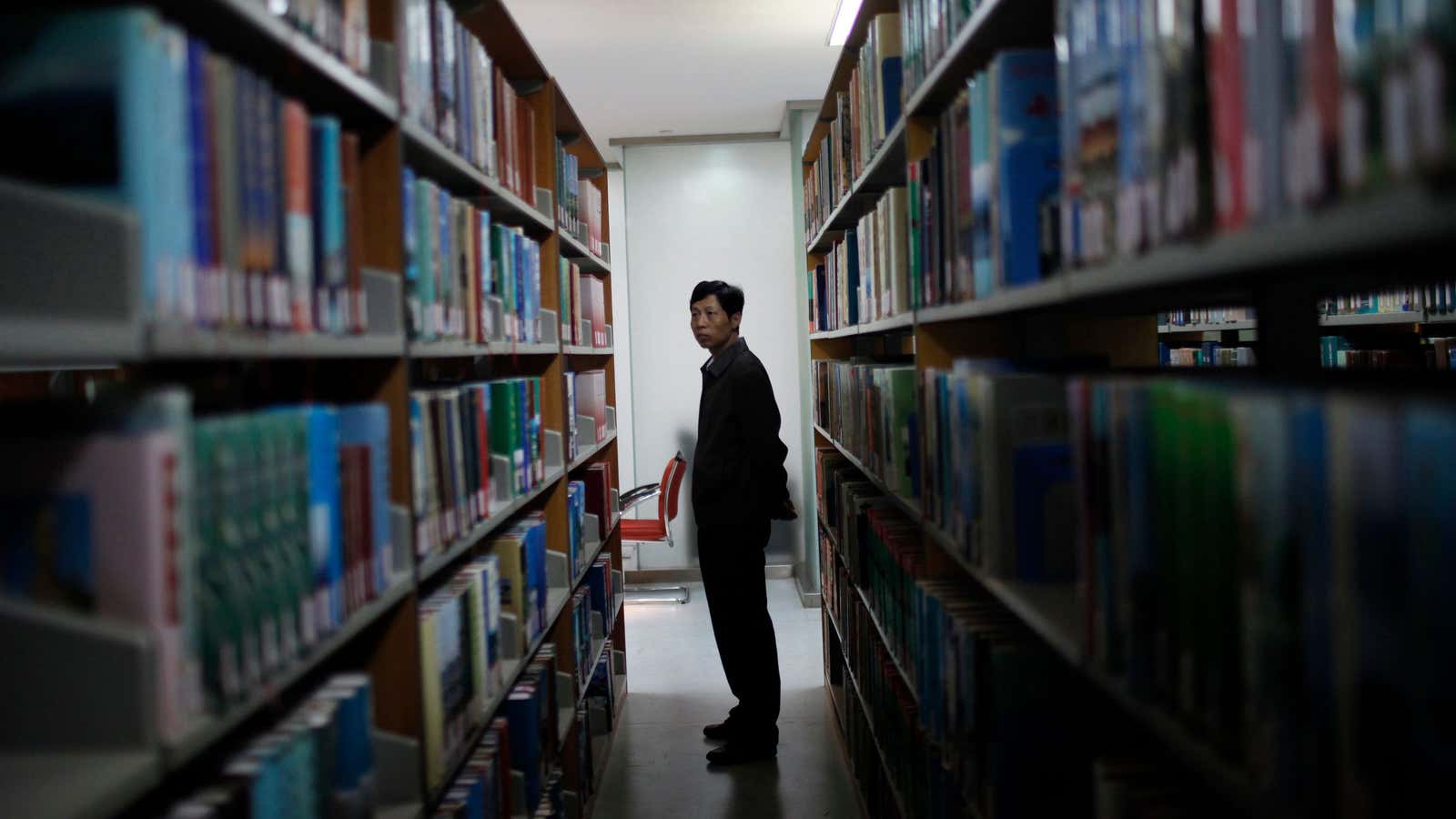When Cambridge University Press’s prestigious China Quarterly journal temporarily capitulated to Chinese censors last year and removed hundreds of articles, it was a wake-up call for the global academia community facing Beijing’s increasing attempts to export the stifling of academic freedom overseas.
A new study conducted by two US academics attempts to find out how pervasive and damaging Chinese repression in academia is. Sheena Greitens and Rory Truex, at the University of Missouri and Princeton University, respectively, found in a survey of over 500 China scholars that “repressive research experiences are a rare but real phenomenon, and collectively present a barrier to the conduct of research in China.”
Attention over academic censorship in China studies is also growing in light of increasing coverage and awareness worldwide of Beijing’s repressive policies in Xinjiang, resulting in the recent expulsion of American BuzzFeed journalist Megha Rajagopalan from China, likely because of her in-depth reporting of the region. China-focused academics themselves have been discussing to what extent they should risk putting their livelihoods and personal safety at stake in order to conduct research on areas like Xinjiang—and whether that raises questions of potential self-censorship.
In their study, Greitens and Truex found that 9% of respondents had been “taken for tea” by authorities in the last 10 years—a term widely used to mean an invitation, usually extended to journalists, to discuss authorities’ displeasure with some aspect of the person’s work. One respondent detailed an incident where he or she was invited to a meeting with the dean of his or her host institution, where they discussed the academic’s research in the presence of a man who did not identify his job title. The academic was told that it was “inconvenient” for him or her to continue doing research in the school’s archives. Others reported being taken away to a police station while doing research at a protest, or being asked to leave by the local government during the course of conducting fieldwork.
Around 31% of respondents said they had faced softer forms of repression, such as denial of access to archives or difficulties obtaining visas. The study suggests that academics who study sensitive topics such as “ethnicity, minorities, religion, and human rights” were more prone to encountering visa difficulties, especially for research that involves Xinjiang and Muslims.
With regards to self-censorship, the authors of the study said that a majority of respondents identified it as a problem in the field of China research, although a “significant number” asserted that they had responsibility to speak “scholarly truth to Chinese power” as foreign academics. The authors, however, acknowledged that what constitutes as self-censorship is ambiguous and contextual, particularly as researchers often also need to be mindful of the safety of their interlocutors or Chinese colleagues.
Despite the high number of respondents acknowledging the problem of self-censorship, the authors of the study said they found no indication that there was a reduction in the amount of sensitive topics being published by top journals.
The authors also note that ultimately, decisions over how to conduct academic research is a “highly personal one,” and that it is impossible to apply blanket judgments to an institution or individual’s risk when researching China. They also urge more attention to be paid to instances of Chinese academic repression in Western institutions themselves.
